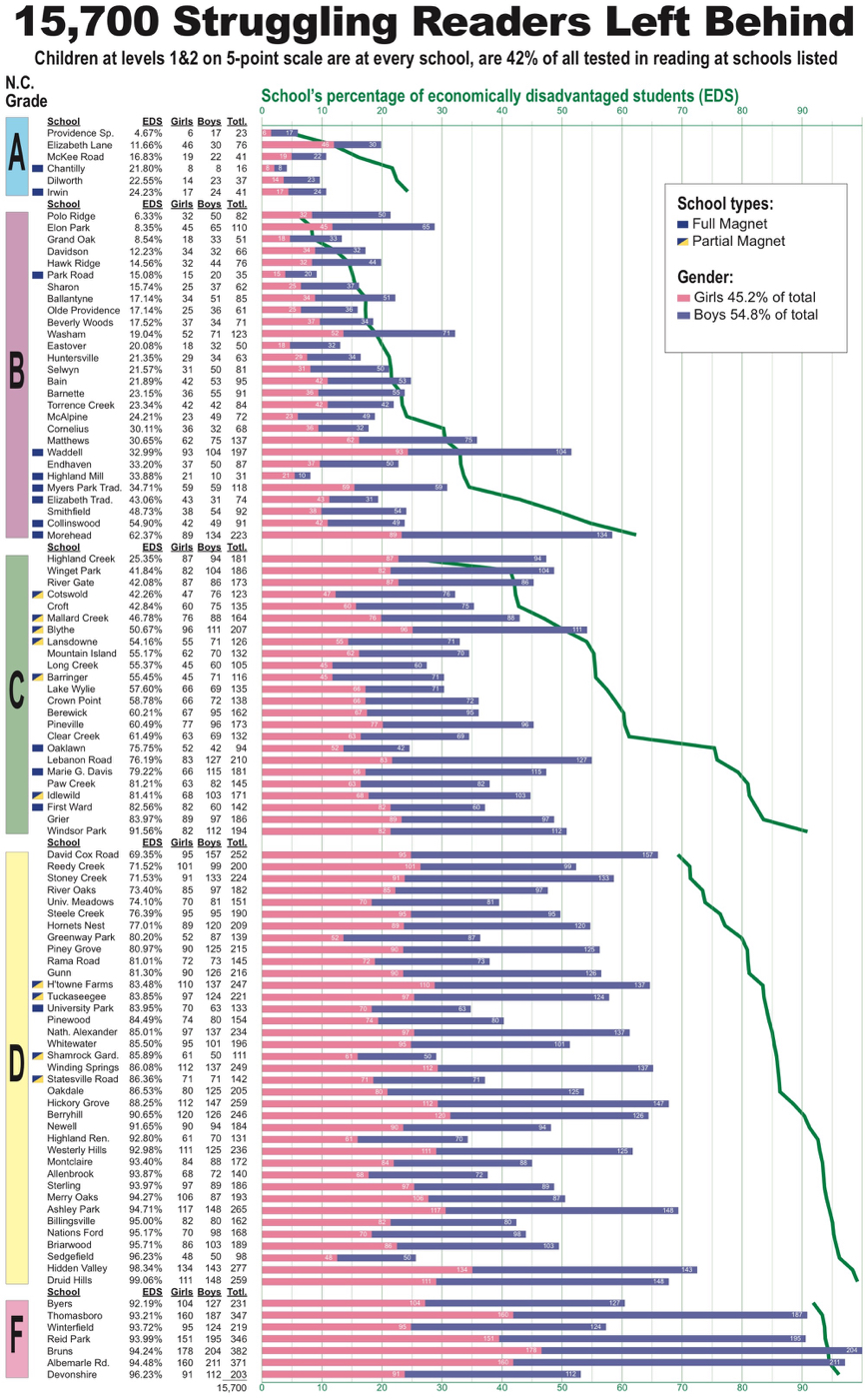
July 8, 2015
A reading score in Level 1 ”denotes limited command of knowledge and skills.” Level 2 ”denotes partial command of knowledge and skills.” None of the students on Level 1 and Level 2 “are prepared for the next grade.” They’ve failed. The quotes and the data are from the N.C. Department of Public Instruction.
Can we get it in our heads that it’s not the children who have failed? It is we adults who have failed, and we’ve failed 15,700 children.
Can we get it in our heads and hearts that the children we’ve failed are at every school, in every nook of Mecklenburg County?
The chart above tracks most of the CMS schools where children in grades 3-8 were tested in reading in 2013-14. The failing readers are at every one of the schools.
Together, the 15,700 students represent about 42% of the children tested in reading in those grades at those schools. The Excel file with all the data will be available here shortly.
There is no one magic solution that will make all these children into proficient readers. Except the most important one: It would be most helpful if as a people we acknowledged that the solutions need to be directed not toward “those” children but toward “our” children – some of whom are our neighbors’ children, the children at our Sunday School, the children of our colleagues at work.
Part of the point of creating a chart like the one above is to explode myths. Two examples;
– Magnets are often places of academic excellence. That is true. It is also true that there are hundreds of failing readers at CMS magnets.
– There are so many factors affecting reading scores that it is simply not true that reading failures rise inexorably with the overall poverty rate at a school. It’s easy to pick out on the chart the schools with similar poverty levels and very different numbers of failing students. Those who look at the chart this way should also remember that total enrollments at CMS schools can vary enormously: Last fall, the Highland Mill Montessori magnet enrolled 235 students; about 6 miles away, the Morehead STEM magnet enrolled 1,156.
Educators should be coming forward during the current student assignment review to offer ways to tackle the reading problem. Some will gain the ear of the school board. Some will gain the ear of a county social mobility task force examining why Mecklenburg is such a difficult place for people to escape poverty. Some will gain the ear of working groups associated with Read Charlotte, a foundation-funded nonprofit aiming to raise today’s roughly 40% reading proficiency rate to 80% in 10 years, meaning the next generation of children.
But the key tasks are not for educators. The key tasks are for the public to be listening, and then investing in solutions.
– Steve Johnston
An 11×17 PDF file of the chart above may be downloaded here.
